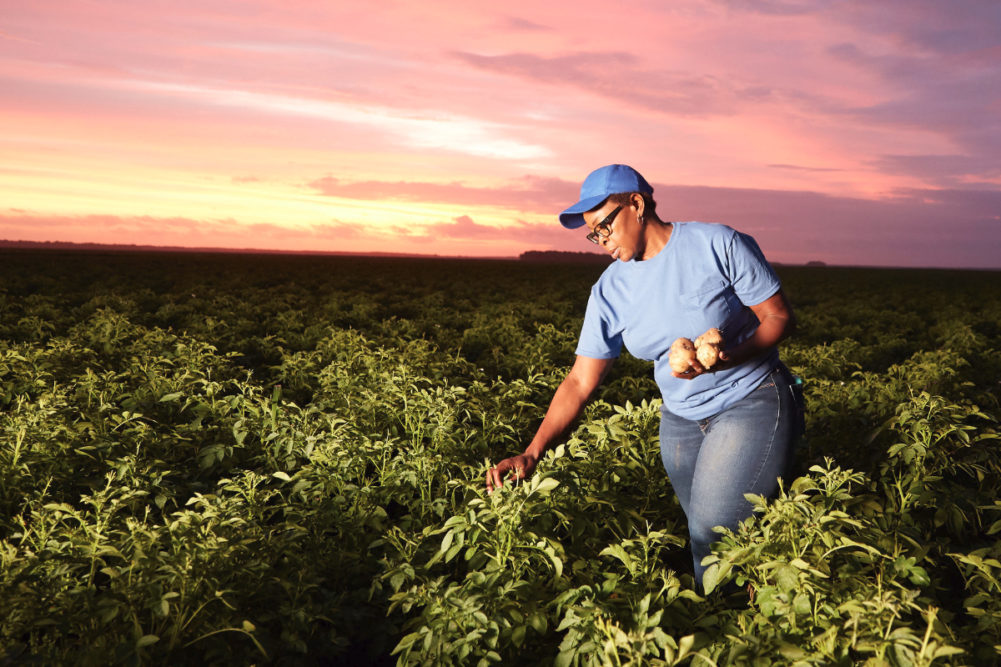PURCHASE, NY. — PepsiCo, Inc. has introduced an ambitious new program designed to eliminate at least 3 million tonnes of greenhouse gas emissions and sustainably source 100% of its key ingredients — all by 2030.
The new initiative, known as PepsiCo’s “Positive Agriculture” ambition, is anchored by a goal to spread regenerative farming practices across 7 million acres, approximately equal to the Purchase-based company’s entire agricultural footprint.
“Any plan to tackle the urgent challenges facing the global food system must address agriculture, the source of nourishment for billions of people and a key lever to address climate change and inequality,” said Ramon Laguarta, chairman and chief executive officer of PepsiCo. “As one of the world’s leading food and beverage companies, a resilient food system is essential to our business, and with our scale we have an opportunity and responsibility to drive meaningful change. PepsiCo’s Positive Agriculture agenda prioritizes investment, innovation, and robust collaboration with our farming partners to deliver impact around the world. Working together, we can reduce our collective carbon footprint, feed a rapidly growing population, and provide meaningful economic opportunities for more people.”
PepsiCo’s Positive Agriculture agenda is centered on three key concepts. First, spreading the adoption of regenerative farming practices across 7 million acres — approximately equal to 100% of the land used around the world to grow crops and ingredients for the company’s products. If successful, PepsiCo’s efforts could lead to a net-reduction of at least 3 million tonnes of GHG emissions by 2030, the company said.
PepsiCo said it will continue to collaborate with farmers across 60 countries to adopt practices that build resilience and improve and restore ecosystems. In the United States, PepsiCo said it has worked with farmers to plant cover crops on more than 85,000 acres and has seen up to a 38% net reduction in on-farm GHG emissions, including soil carbon sequestration. Plans now call for PepsiCo to expand its regenerative agriculture programs to more than 500,000 acres of US farmland by the end of 2021. PepsiCo also said it plans to continue to grow its global network of Demonstration Farms, which enable peer-to-peer learning. In 2020, the company’s Demonstration Farms grew to more than 350, with more than 80% adopting regenerative farming practices, PepsiCo said.
A second focus of the Positive Agriculture agenda is to improve the livelihoods of more than 250,000 in PepsiCo’s agricultural supply chain and communities, including economically empowering women. To achieve this goal, PepsiCo said it will focus its work on the most vulnerable farming communities linked to its global value chain, including smallholder farmers and farm workers, women and minority farmers. The company also plans to advance this goal through diverse partnerships, including US Agency for International Development, Inter-American Development Bank, CARE, National FFA Organization, and the National Black Growers Council.
Finally, PepsiCo’s Positive Agriculture ambition will focus on sustainably sourcing 100% of key ingredients. At the end of 2020, PepsiCo said direct-sourced crops (potatoes, whole corn, oats and oranges) were 100% sustainably sourced in 28 countries, and approximately 87% of global direct crops were sustainably sourced through the company’s Sustainable Farming Program. In addition to direct-sourced crops, PepsiCo said it is seeking sustainable sourcing for key crops from third parties, such as vegetable oils and grains.
Additionally, PepsiCo achieved its goal to source 100% Bonsucro certified sustainable cane sugar globally by 2020 and achieved more than 99% physically certified palm oil by the Roundtable on Sustainable Palm Oil.
“Through our Sustainable Farming Program and ongoing work with tens of thousands of farmers, we’ve seen first-hand the ability to drive solutions within our agricultural communities, resulting in nature-based outcomes,” said Jim Andrew, chief sustainability officer, PepsiCo. “Today, we’re accelerating our Positive Agriculture agenda because we know we have to do even more to create truly systemic change. By focusing on regenerative agriculture practices at the local level to improve soil health, we can build a stronger foundation for our products and help make the entire food system more sustainable.”
PepsiCo said it intends to measure progress toward its Positive Agriculture goals by tracking acres and people engaged in the initiative and, over time, the impact toward five key outcomes, including: building soil health and fertility; sequestering carbon and reducing emissions; enhancing watershed health; increasing biodiversity; and improving farmer livelihoods.
Earlier this year, PepsiCo said actions taken in areas such as farming practices, packaging materials and delivery vehicles would allow it to cut carbon emissions by more than 40% by 2030 when compared against a 2015 baseline. The goal more than doubles the company’s previous climate objective. If achieved, it would result in the reduction of over 26 million tonnes of greenhouse gas emissions, or the equivalent of taking 5 million cars off the road for a year.
At the time, PepsiCo also said it plans to achieve net-zero emissions by 2040, which would be a decade ahead of the goal called for in the Paris Agreement, an international treaty on climate change. Net-zero emissions refers to human-based GHG emissions being balanced out by removing GHGs from the atmosphere.





